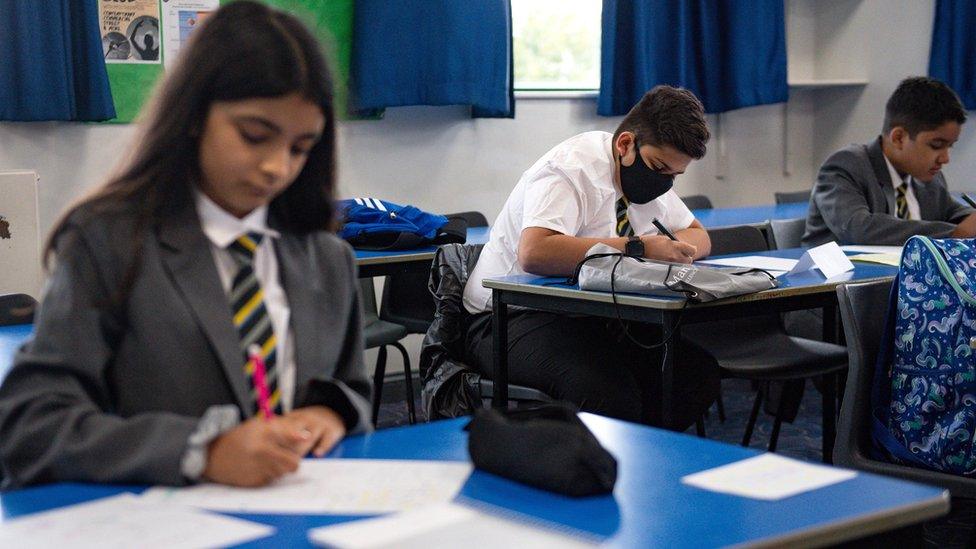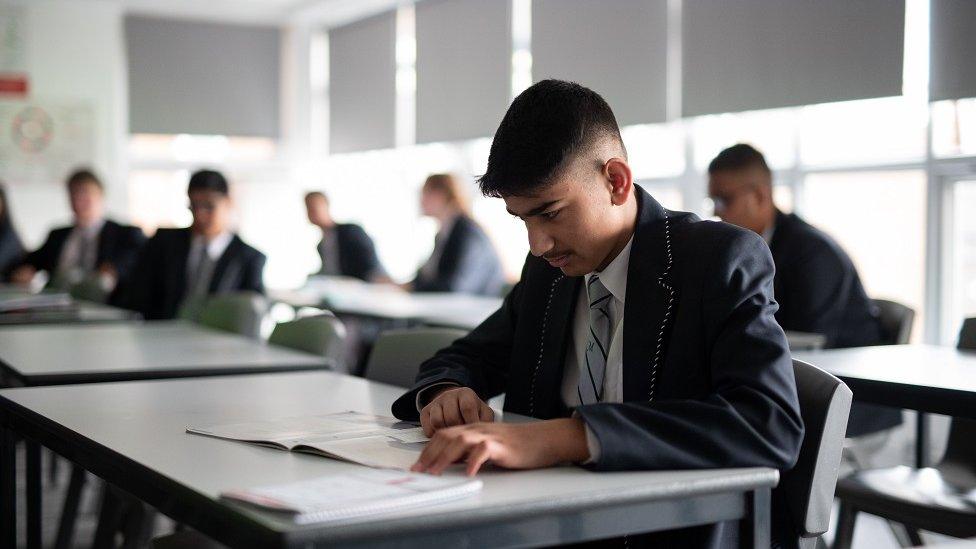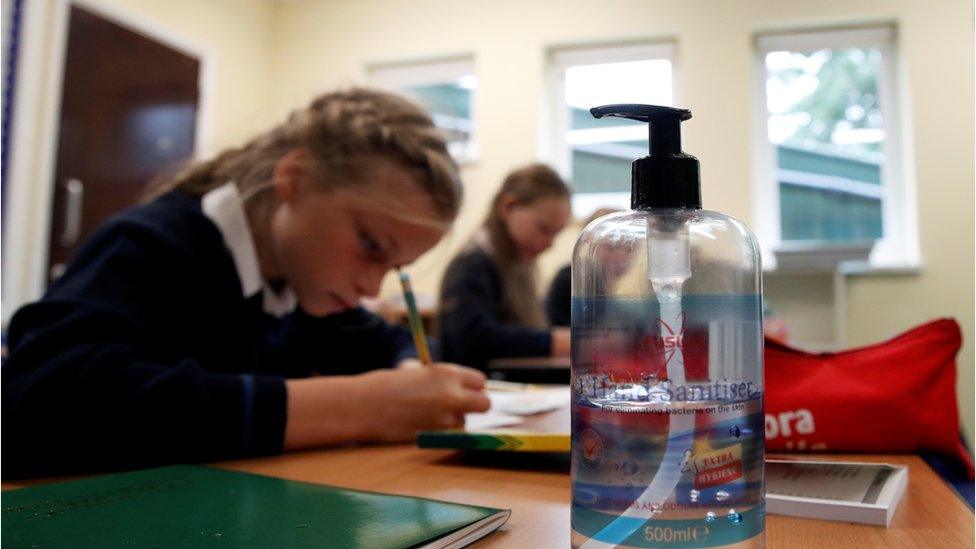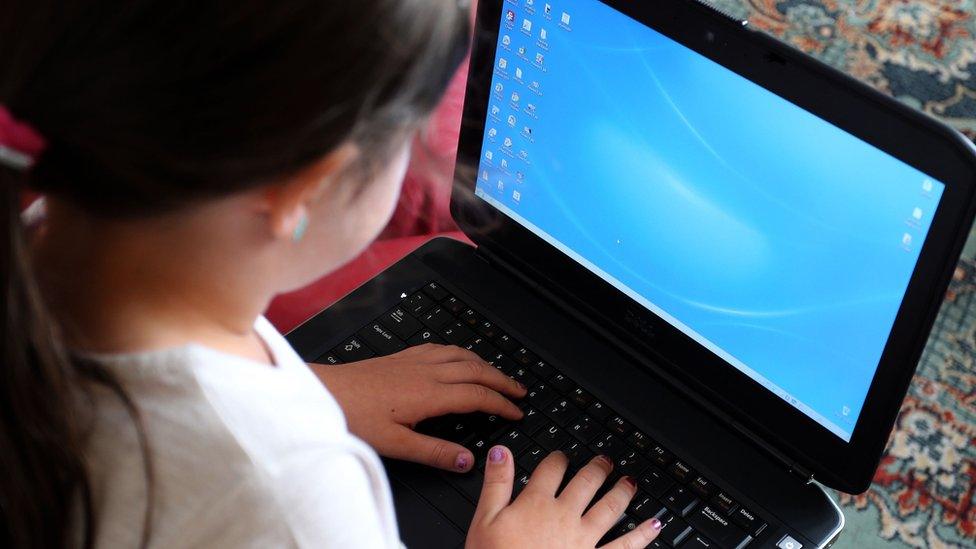Lockdown: Government resists calls to shut schools in England
- Published

Mayors of some of the areas hardest-hit by Covid-19 have called for England's schools and colleges to close during the lockdown.
Greater Manchester Mayor Andy Burnham and Liverpool City Region Mayor Steve Rotheram said that education institutions should close to reduce the spread of the virus more quickly.
Scientists have also warned Covid-19 is spreading fast in secondary schools.
But cabinet minister Michael Gove said: "We want to keep schools open."
Mr Gove told the BBC's Andrew Marr Show that the government was taking the necessary measures to keep schools open.
He rejected the suggestion that it would mean a longer period of lockdown because schools staying open would contribute to the continued transmission of coronavirus.
Infection rates among secondary school children "appear to be steeply increasing", according to the latest survey by the Office for National Statistics, external.
An estimated 2% of children in Year 7 to Year 11 tested positive for the virus in the most recent week of testing, the highest positivity rate of any age group except sixth-formers and young adults.
Sir Jeremy Farrar, a member of the government's Scientific Advisory Group for Emergencies (Sage), told the Andrew Marr Show that keeping schools open was the "big difference" between the new restrictions and the lockdown in spring.
"Because we have delayed the onset of this lockdown it does make keeping schools open harder," he said.
"We know that transmission, particularly in secondary schools, is high."
He said that closing schools "may have to be revisited" over the next four weeks if the transmission of the virus continues to rise.

PAY-PACKET SUPPORT: What do chancellor's plans mean for wages?
LOOK-UP TOOL: How many cases in your area?

The Manchester and Liverpool mayors said at a joint press conference that they wanted to see a period of two weeks' closure towards the second half of November, giving schools some time to prepare online learning.
Mr Burnham said: "That would create the conditions for the biggest drop in cases that we could achieve and it would then create the conditions for some kind of Christmas for more families, because they need it right now."
Without this, the mayors said they feared their regions would simply be back in the restrictive tier three measures.
Labour leader Sir Keir Starmer has said he supports keeping schools open, but said "we've got to manage the risk".
'Another half measure'
The National Education Union has called for schools and colleges to close, saying that if they stay open the restrictions will be less effective.
Joint general secretary Kevin Courtney said the lockdown was "another half measure and, without school closures as part of it, it is unlikely to have the effect that the prime minister wants".
Different parts of the UK have taken a different approach to schools during the second wave of the pandemic.
In Northern Ireland, schools are due to reopen on Monday after an extended two-week half-term holiday, as part of a four-week period of additional restrictions.
And in Wales, Years 9 and above in secondary schools will only return when the nation's "firebreak" lockdown ends on 9 November.
But Scotland aims to keep schools open under its five-level system of restrictions, coming into force on Monday.

Are you the parent of schoolchildren? How do you feel about schools remaining open during the second lockdown? Share your experiences by emailing haveyoursay@bbc.co.uk, external.
Please include a contact number if you are willing to speak to a BBC journalist. You can also get in touch in the following ways:
WhatsApp: +44 7756 165803
Tweet: @BBC_HaveYourSay, external
Please read our terms & conditions and privacy policy
If you are reading this page and can't see the form you will need to visit the mobile version of the BBC website to submit your question or comment or you can email us at HaveYourSay@bbc.co.uk, external. Please include your name, age and location with any submission.
- Published24 October 2020

- Published27 October 2020

- Published24 October 2020
